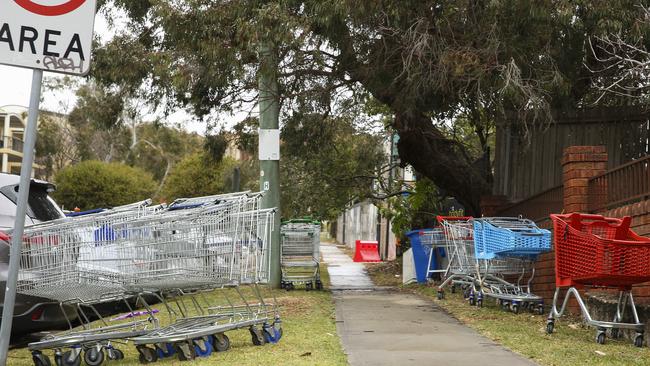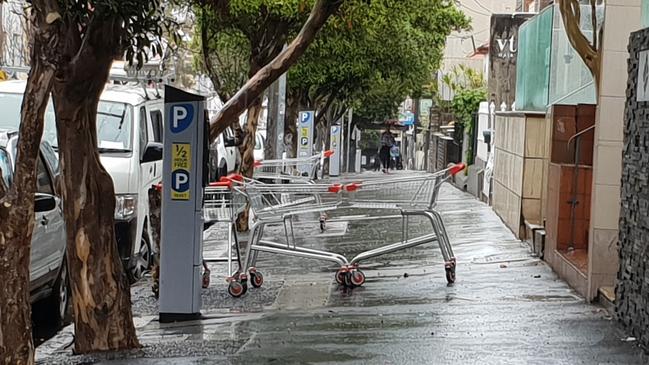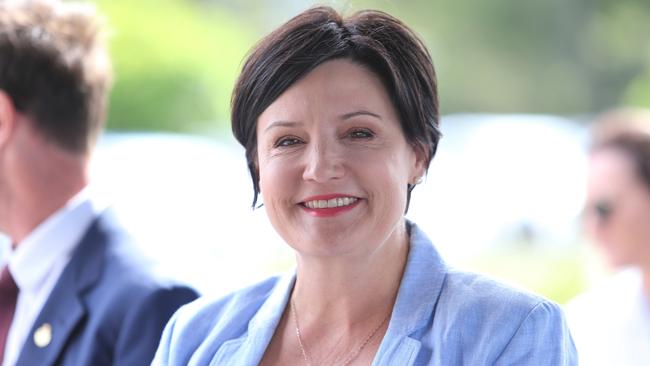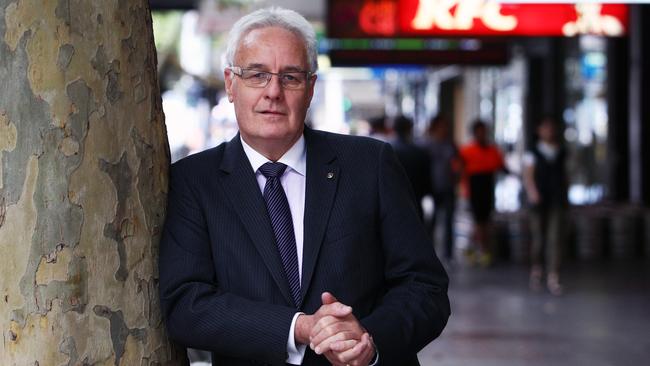Plan to collect supermarkets’ lost shopping trolleys quickly
Abandoned shopping trolleys have long been an eyesore on many city and suburban streets, but a new plan promises to round them up by putting tougher conditions on retailers.
Abandoned shopping trolleys have long been an eyesore on many city and suburban streets, but a new plan promises to round them up by putting tougher conditions on retailers.
NSW Labor says the problem can be curbed by giving retailers three hours to collect a trolley posing a safety risk, or be fined.

Currently, retailers have 72 hours to collect a trolley once it is reported by a ranger.
Rangers would also have the power to immediately impound trolleys posing a safety risk.
The maximum penalty would increase from $550 to $2750.

The proposed changes are similar to those made to the Impounding Act 1993 earlier this year, designed to collect the many dumped share bicycles in streets and parks.
Strathfield state Labor MP Jodi McKay said she hoped the changes would prompt retailers to better manage the problem, and allow councils to recoup the cost of time spent on trolleys.
“One of the biggest issues raised by residents is the dumping of shopping trolleys,” she said.
“Councils simply don’t have the power to force shopping centres to take action.”

She and Opposition spokesman on local government Peter Primrose said Labor’s proposal would strengthen those powers.
Areas such as Burwood have been plagued with trolleys left by the roadside for years.
Coin release systems, which encourage customers to return trolleys, and collection hotlines have made marginal difference.
Burwood Council rangers reported 537 abandoned trolleys in six months this year.
The council’s general manager Bruce Macdonnell said rangers were spending plenty of time reporting lost trolleys to retailers.
“We’re doing their work for them,” he said.
Not everyone liked the Labor proposal.
Australian Retailers Association executive director Russell Zimmerman said there were major problems with the plan.

The five-fold increase to the maximum penalties could severely hurt small businesses, which did not have the same collection resources as supermarket chains, he said.
Mr Zimmerman said people could report trolleys to a service called Trolley Tracker, which worked well and returned them quickly.
A spokesman for Woolworths said it spent millions in trolley collection services to help mitigate their impact.
Contractors returned abandoned trolleys to stores within 24 hours, and regularly patrolled nearby streets, he said.
A spokeswoman for Coles said it would participate in the discussion.
Coles spent a significant amount of money maintaining and collecting trolleys each year, she said, and was working to improve the situation with daily patrols and a hotline.
Councils will be able to choose whether to opt in to the scheme.
Labor will not be able to table a bill until after NSW Parliament next sits after the election.


